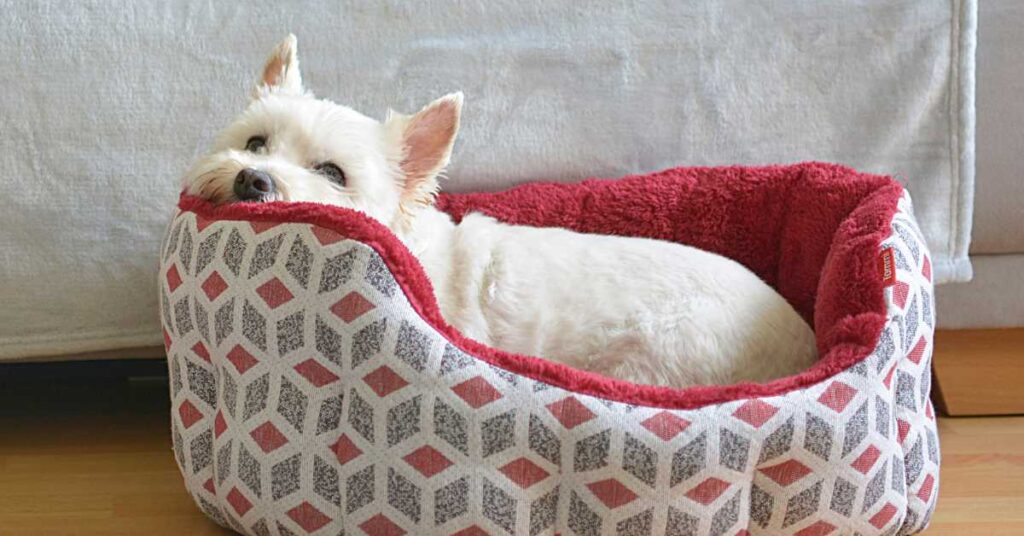When seeking a healthy schnauzer puppy, remember that the eyes are the windows to the soul. But how can you be sure if those bright and clear eyes are truly a reflection of good health?
There are several key indicators that can guide you in ensuring your schnauzer puppy is thriving. From their coat to their behavior, each aspect plays a vital role in painting a picture of their well-being.
Let’s explore these signs in more detail to help you make an informed decision when welcoming a new furry family member.
Key Takeaways
- Bright eyes and shiny coat indicate health
- Playful, energetic behavior is a good sign
- Curious, adaptable nature shows vitality
- Social, friendly interactions demonstrate well-being
Bright and Clear Eyes
To ensure your schnauzer puppy is healthy, examine its eyes for brightness and clarity. Bright and clear eyes are a sign of good health in your furry companion. Proper nutrition plays a crucial role in maintaining your puppy’s eye health. Make sure your schnauzer is getting a balanced diet rich in essential nutrients like vitamins A and C, which are vital for eye health. Regular exercise is also important as it promotes overall well-being, including eye health. Engage your puppy in activities that encourage movement and play to support their physical health, which in turn benefits their eyes.
When checking your schnauzer puppy’s eyes, look for any signs of cloudiness, redness, or discharge. These could indicate underlying health issues that need attention. If you notice any concerning symptoms, it’s best to consult your veterinarian for a thorough examination. By keeping an eye on your puppy’s eyes and ensuring they receive proper nutrition and regular exercise, you can help maintain their overall health and well-being.

Shiny and Soft Coat
For a healthy schnauzer puppy, a shiny and soft coat is indicative of good overall well-being. Ensuring your furry companion has a luscious coat involves more than just aesthetics; it can also be a sign of good health. Here are some essential tips to help maintain a shiny and soft coat for your schnauzer puppy:
- Regular Grooming Routine: Implementing a consistent grooming schedule is crucial for keeping your schnauzer’s coat in top condition. Brushing your puppy regularly helps distribute natural oils, preventing matting and keeping the coat shiny.
- Nutrition, Dietary Needs: Providing your schnauzer puppy with a balanced diet rich in essential nutrients is key to promoting a healthy coat. Ensure their food is high-quality and meets their specific dietary requirements for optimal coat health.
- Hygiene Practices: Regular baths using dog-friendly shampoo and conditioner can help keep your puppy’s coat clean and soft. Be mindful of any skin sensitivities and choose grooming products that suit your schnauzer’s skin type.
Energetic Playfulness
When assessing the health of a schnauzer puppy, observing their energetic playfulness can provide valuable insights into their overall well-being. A healthy schnauzer puppy is typically full of energy, eager to play, and engage in various activities. Their playfulness is a good indicator of their physical health and mental stimulation.
To ensure your schnauzer puppy maintains this lively demeanor, incorporating proper training techniques and exercise routines is essential. Training techniques such as positive reinforcement can help channel their energy into productive behaviors while strengthening the bond between you and your furry companion.
Engaging in regular exercise routines tailored to their age and energy levels is also crucial. Whether it’s interactive games, short walks, or playtime in a secure environment, providing opportunities for physical activity is key to keeping your schnauzer puppy happy and healthy.
Healthy Weight and Body Condition
Observing the weight and body condition of your schnauzer puppy regularly is crucial for ensuring their overall health and well-being. Here are some key points to consider:
- Growth Milestones: Keep track of your puppy’s growth milestones to ensure they’re developing at a healthy rate. Consult your veterinarian to determine the appropriate weight range for your schnauzer’s age and breed.
- Nutritional Needs: Provide a balanced diet tailored to your schnauzer puppy’s nutritional needs. High-quality puppy food that meets their specific requirements is essential for proper growth and weight management.
- Exercise Routines: Establish consistent exercise routines to help your schnauzer puppy maintain a healthy weight and body condition. Regular physical activity not only supports their overall well-being but also strengthens the bond between you and your furry companion.
Clean Ears and Teeth
Regularly checking and maintaining your schnauzer puppy’s ears and teeth is essential for their overall health and well-being. Proper grooming of your puppy includes keeping their ears clean and free of dirt, debris, and excess wax. Use a damp cloth or a veterinarian-recommended ear cleaning solution to gently wipe the outer ear. Avoid inserting anything into the ear canal to prevent injury.
Inspecting your puppy’s teeth is equally important. Dental care is crucial to prevent dental issues such as plaque buildup, gum disease, and tooth decay. Introduce your puppy to a regular teeth brushing routine using a dog-specific toothbrush and toothpaste. Start slowly and ensure your puppy gets used to the process gradually. Additionally, providing dental chews or toys can help in reducing plaque and keeping their teeth healthy.
Regular Vet Check-ups
Scheduling regular veterinary check-ups is crucial for monitoring and maintaining your schnauzer puppy’s health. These check-ups help ensure your puppy is growing well, catching any health issues early, and staying up to date on vaccinations. Here are three key reasons why regular vet check-ups are essential for your schnauzer puppy:
- Early Detection of Health Issues: Regular check-ups allow the vet to detect any potential health concerns early on, increasing the chances of successful treatment. This proactive approach can help keep your schnauzer puppy healthy and happy.
- Guidance on Early Socialization and Training: Vets can provide valuable advice on early socialization and training, setting your puppy up for a well-adjusted and obedient life. They can address behavioral issues and provide tips for a harmonious relationship between you and your furry companion.
- Advice on Proper Grooming and Maintenance: Vets can offer guidance on the proper grooming and maintenance routines for your schnauzer puppy, ensuring they stay clean, healthy, and looking their best. Regular check-ups can help you keep track of your puppy’s grooming needs and address any concerns promptly.
Balanced Diet and Appetite
Ensuring your schnauzer puppy maintains a balanced diet is essential for their overall health and well-being. A nutritious diet plays a crucial role in supporting their growth and development. It’s important to provide a high-quality puppy food that’s specifically formulated to meet the needs of a growing schnauzer. Look for options that contain a good balance of protein, carbohydrates, fats, vitamins, and minerals to support their overall health.
Monitoring your puppy’s appetite is also vital. Puppies are generally energetic and playful, so a good appetite is a positive sign of their well-being. However, sudden changes in appetite could indicate an underlying health issue, so it’s essential to keep an eye on their eating habits. If you notice any significant changes in appetite or eating patterns, it’s best to consult with your veterinarian to rule out any potential concerns.
Social and Curious Behavior
To understand if your schnauzer puppy is healthy, observe their social and curious behavior as it can provide valuable insights into their overall well-being. Healthy schnauzer puppies exhibit specific behaviors that indicate their physical and mental health. Here are three key signs to look out for:
- Playful Interactions and Sociable Demeanor: A healthy schnauzer puppy will engage in playful interactions with you, other pets, or even toys. They’ll show eagerness to play, wagging their tail, and seeking out companionship. A sociable demeanor is a positive indicator of their well-being, demonstrating their emotional intelligence and ability to connect with others.
- Curiosity-Driven Exploration and Friendly Interactions: Healthy schnauzer puppies possess a natural curiosity that drives them to explore their surroundings. They’ll approach new objects or people with interest and confidence. Their friendly interactions with unfamiliar stimuli showcase their outgoing personality and adaptability, which are essential traits for a well-rounded companion.
- Adaptability in New Environments: A healthy schnauzer puppy will show adaptability when introduced to new environments or situations. They may initially be cautious but should quickly acclimate, showing resilience and a willingness to explore. This adaptability reflects their confidence and overall mental well-being.
Frequently Asked Questions
How Can I Tell if My Schnauzer Puppy Is Prone to Any Specific Health Issues?
To determine if your Schnauzer puppy is prone to specific health issues, consider their genetics, regular vet check-ups, and lifestyle factors. Proper nutrition and socialization skills play vital roles in keeping your puppy healthy and happy.
What Kind of Exercise Routine Should I Establish for My Schnauzer Puppy to Maintain Their Health?
To maintain your Schnauzer puppy’s health, establish a balanced exercise routine. Incorporate puppy socialization, obedience training, indoor playtime, and mental stimulation. Regular walks, interactive toys, and engaging activities will keep your furry friend happy and healthy.
Are There Any Specific Grooming Tips or Products I Should Use for My Schnauzer Puppy’s Coat?
To keep your Schnauzer puppy’s coat healthy, regular grooming is crucial. Use a slicker brush for their wiry fur, bathe them every 6-8 weeks, and trim their coat as needed. Socialize them early to ensure a well-rounded companion.
How Can I Prevent My Schnauzer Puppy From Developing Separation Anxiety or Behavioral Issues?
To prevent separation anxiety and behavioral issues in your Schnauzer puppy, focus on crate training, socialization, positive reinforcement, and mental stimulation. Introduce new experiences gradually, create a routine, and offer plenty of love and attention.
What Vaccinations and Preventative Care Should I Prioritize for My Schnauzer Puppy’s Health and Well-Being?
To ensure your Schnauzer’s health and well-being, prioritize vaccinations and preventative care. Implement a balanced diet, positive training methods, proper socialization, and regular dental care. These steps will help your puppy grow into a happy and healthy companion.
Conclusion
In conclusion, when looking for signs of a healthy schnauzer puppy, be sure to check for:
- Bright eyes
- A shiny coat
- Playful energy
- A healthy weight
- Clean ears and teeth
- Regular vet check-ups
- A balanced diet
- Social behavior
By being observant and proactive in caring for your schnauzer puppy, you can ensure they grow up to be happy and healthy companions for years to come.



